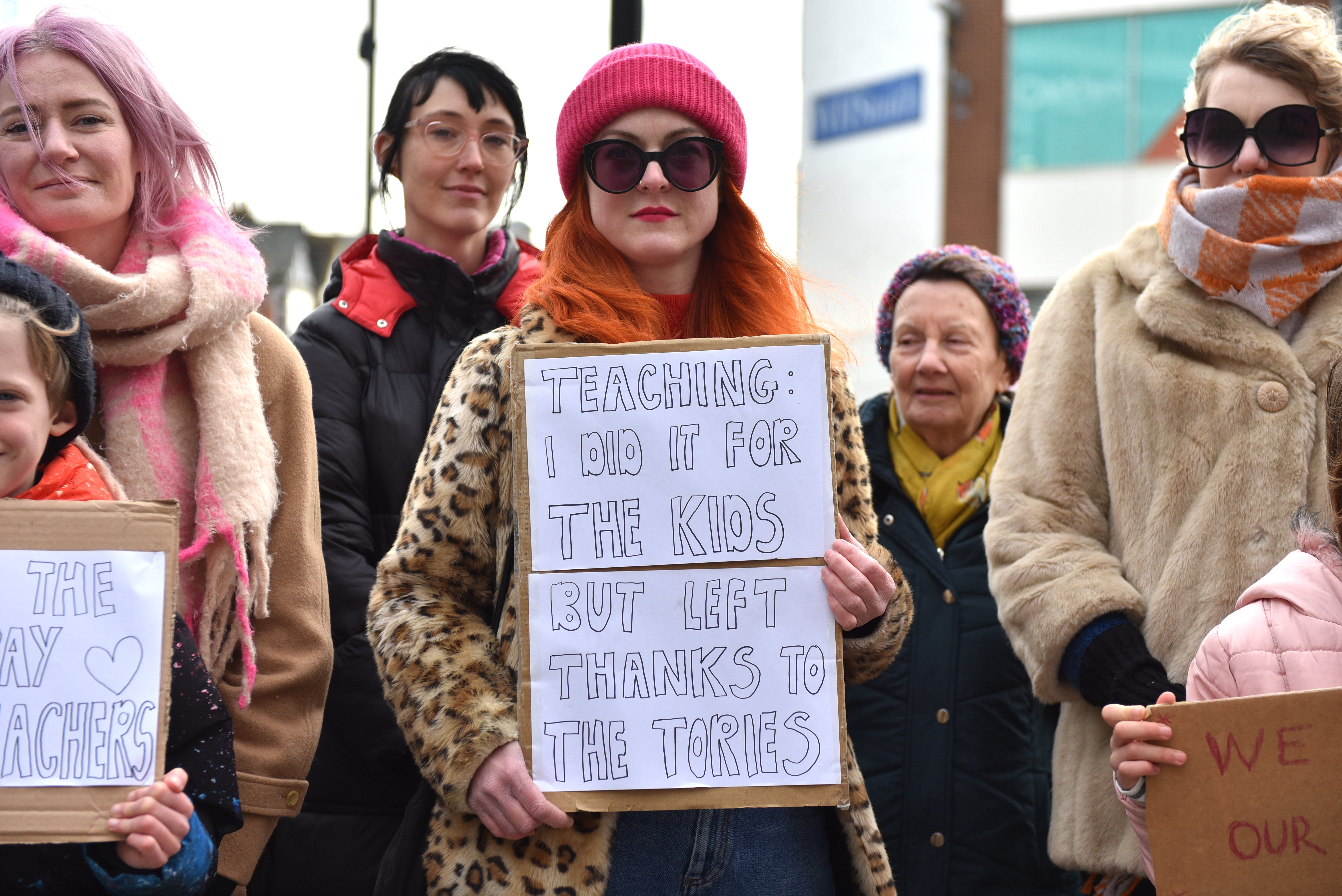Why are teachers striking and on what dates?
More than 100,000 teachers joined walkout on Wednesday in a dispute over pay
Your support helps us to tell the story
From reproductive rights to climate change to Big Tech, The Independent is on the ground when the story is developing. Whether it's investigating the financials of Elon Musk's pro-Trump PAC or producing our latest documentary, 'The A Word', which shines a light on the American women fighting for reproductive rights, we know how important it is to parse out the facts from the messaging.
At such a critical moment in US history, we need reporters on the ground. Your donation allows us to keep sending journalists to speak to both sides of the story.
The Independent is trusted by Americans across the entire political spectrum. And unlike many other quality news outlets, we choose not to lock Americans out of our reporting and analysis with paywalls. We believe quality journalism should be available to everyone, paid for by those who can afford it.
Your support makes all the difference.Schools across England and Wales will be forced to periodically shut their doors during a series of walkouts over the next two months.
The mix of nationwide and regional strikes began on Wednesday, with the last day of action scheduled for mid-March.
The National Education Union (NEU) announced seven days of industrial action across February and March, with more than 100,000 teachers joining Wednesday’s walkout in a dispute over pay.
Teachers joined train drivers, civil servants, university lecturers, bus drivers and security guards from seven trade unions as they gathered on picket lines for the biggest day of industrial action in over a decade.
The teachers’ strike follows failed talks on Monday afternoon between education secretary Gillian Keegan and the general secretaries of the unions, which it had been hoped would resolve the pay dispute.

Here’s everything we know about the strikes:
Why are teachers striking?
Teachers are walking out over a “toxic mix of low pay and excessive workload”, the NEU says.
Of teachers in England, 90.44 per cent of members taking part in the ballot voted yes to taking industrial action on a turnout of 53.27 per cent, while teachers in Wales voted 92 per cent for strike action on a turnout of 58.07 per cent.
Teacher salaries fell by an average of 11 per cent between 2010 and 2022 in England, after taking rising prices into account, according to the Institute for Fiscal Studies (IFS).
Many teachers in England and Wales received a 5 per cent rise in 2022. In Scotland, teachers rejected both a 5 per cent increase and an offer of up to 6.85 per cent. In Northern Ireland, most teachers were offered 3.2 per cent for 2021/22 and 2022/23.

“This is not about a pay rise but correcting historic real-term pay cuts,” Dr Mary Bousted and Kevin Courtney, joint general secretaries of the NEU, said in a statement.
Unions want schools to get extra money to ensure pay rises do not come from existing budgets.
What does the government say?
Speaking on Monday following failed talks with union chiefs, the education secretary was disdainful as she attacked the NEU for proceeding with the “unnecessary disruption.”
On Wednesday, as teachers took the picket lines for the first day of strikes, Ms Keegan told Sky News she was “really disappointed” some schools would close.
On pay rises next year, she said the government “look into what is reasonable to make sure that we always retain the best teachers and we attract the best teachers”.
“You know, we all want to have a world-class education system. You need brilliant teachers.”
During Prime Minister’s Questions on Wednesday, Rishi Sunak said that teachers have been given “the highest pay rise in 30 years”, including a 9 per cent raise for newly-qualified teachers, and that he believed “children deserve to be in school”
What are the next strike dates?

National Education Union (NEU) strikes in England and Wales
- 1 February: All schools in England and Wales
- 14 February: All schools in Wales
- 28 February: North and north-west England, Yorkshire and Humber
- 1 March: East Midlands, West Midlands, and the NEU’s eastern region
- 2 March: South-east and south-west England, and London
- 15 and 16 March: All schools in England and Wales







Join our commenting forum
Join thought-provoking conversations, follow other Independent readers and see their replies
Comments